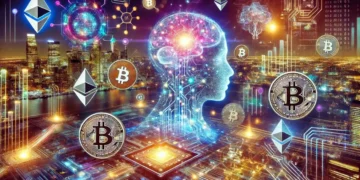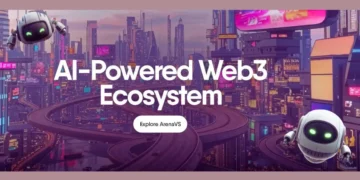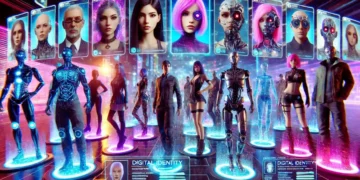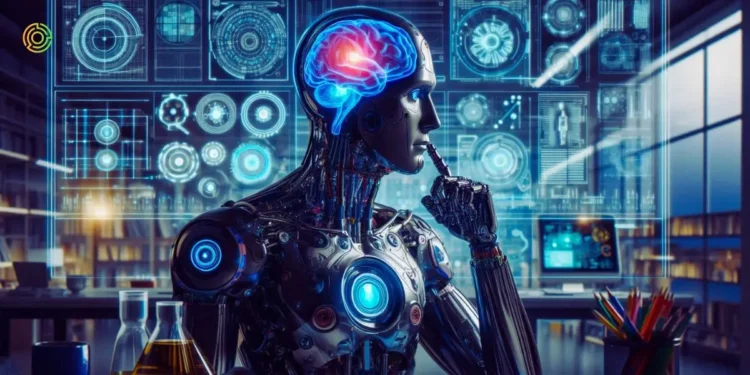After months of speculation, OpenAI has finally unveiled details about the highly anticipated GPT-5. Initially expected in 2024, its release has been postponed to late 2025 or early 2026. Mira Murati, OpenAI’s CTO, shared insights in an interview with Dartmouth Engineering about the capabilities and potential of this new version. Here’s everything you need to know.
A Quantum Leap in Intelligence
Murati compares previous versions of GPT to different levels of human intelligence. GPT-3 is akin to a young child, while GPT-4 is comparable to a high school student. The new GPT-5 promises to reach a “Ph.D.-level intelligence for specific tasks.” This advancement is not only exciting but also raises questions about the future of artificial intelligence.
Evolution of GPT: From Child to Ph.D.
Comparing these versions to stages of human education helps us grasp these advancements better. GPT-3, with its ability to generate coherent and useful text, opened many doors. GPT-4 improved these skills, demonstrating superior performance in more complex tasks. Now, GPT-5 aims to take this to an entirely new level, with advanced reasoning and memory capabilities.
Specialized Intelligence
Ph.D.-level intelligence doesn’t mean GPT-5 can do everything perfectly. Murati clarified that these abilities will be task-specific. This suggests that while AI might surpass humans in certain fields, it will still have limitations in others. This specialized focus could lead to highly precise and useful applications in areas like scientific research and complex data analysis.
Potential and Future Applications
The development of GPT-5 opens a range of possibilities across different sectors. From education to medicine, and research to technology, the applications are vast.
Education and Training
An AI capable of reaching Ph.D. levels could radically transform education. Personalized tutoring systems could provide support to students in complex areas, enhancing understanding and academic performance.
Medicine and Healthcare
In medicine, an AI with such capabilities could assist in diagnosing rare diseases, developing personalized treatments, and managing large volumes of clinical data, significantly advancing medical care.
Research and Development
Researchers could greatly benefit from an AI that can analyze large datasets, identify patterns, and generate hypotheses, accelerating the pace of scientific and technological discoveries.
Challenges and Ethical Considerations
Despite the promising applications, the development of such advanced AI also brings significant ethical challenges. Over-reliance on AI for critical tasks could lead to issues if not managed properly.
Privacy and Security
Data privacy and cybersecurity will be crucial topics. Ensuring AI systems are not misused and that sensitive data is adequately protected will be a priority.
Employment Impact
The impact on employment is also a concern. Automating specialized tasks could displace certain professionals, necessitating proactive measures to address these socioeconomic implications.
Conclusion
The delay in GPT-5’s release may be disappointing for some, but its advanced capabilities generate significant anticipation. If OpenAI meets its goals, we could be looking at a revolutionary tool that transforms multiple industries and changes how we interact with technology.
FAQs
1. What is GPT-5?
GPT-5 is the upcoming version of OpenAI’s Generative Pre-trained Transformer (GPT) series, promising Ph.D.-level intelligence for specific tasks.
2. When is GPT-5 expected to be released?
The release of GPT-5 has been postponed to late 2025 or early 2026.
3. How does GPT-5 compare to previous versions?
GPT-3 is akin to a young child in intelligence, while GPT-4 compares to a high school student. GPT-5 aims to achieve Ph.D.-level intelligence for specific tasks, offering advanced reasoning and memory capabilities.
4. What kind of tasks will GPT-5 be able to perform?
GPT-5 will be specialized in certain tasks, excelling in specific fields like scientific research, complex data analysis, education, and healthcare.
5. Will GPT-5 be perfect at everything?
No, GPT-5’s Ph.D.-level intelligence will be task-specific, meaning it will excel in certain areas but still have limitations in others.
6. What are the potential applications of GPT-5?
Potential applications include personalized tutoring in education, assistance in diagnosing diseases and developing treatments in healthcare, and aiding researchers in analyzing large datasets and generating hypotheses.
7. What are the ethical considerations associated with GPT-5?
Ethical considerations include ensuring data privacy and cybersecurity, managing the socio-economic impact of job displacement due to automation, and preventing misuse of advanced AI systems.
8. How will GPT-5 impact data privacy and security?
Ensuring the protection of sensitive data and preventing the misuse of AI systems will be crucial. Measures will need to be implemented to safeguard data privacy and security.
9. What is the potential impact of GPT-5 on employment?
The automation of specialized tasks by GPT-5 could displace certain professionals, necessitating proactive measures to mitigate these socio-economic impacts.
10. Why was the release of GPT-5 delayed?
The delay allows OpenAI to refine and enhance GPT-5’s capabilities to ensure it meets the high expectations for its advanced intelligence and specialized applications.
11. How can GPT-5 transform education?
GPT-5 could revolutionize education by providing personalized tutoring systems that support students in complex subjects, improving comprehension and academic performance.
12. What advancements could GPT-5 bring to the medical field?
In medicine, GPT-5 could aid in diagnosing rare diseases, developing personalized treatments, and managing vast amounts of clinical data, leading to significant advancements in medical care.
Follow us on our social networks and keep up to date with everything that happens in the Metaverse!
Twitter Linkedin Facebook Telegram Instagram Google News Amazon Store
Recent Posts
- How to accept Bitcoin Payments and other Cryptocurrency as a Business
- Metaverse Fashion Week 2025: Global Designers Challenge Borders, Identity, and the Limits of Physical Fashion
- Elon Musk’s AI platform — Presentation of New AI Assistant from ArbitrageScanner. Traders review
- Finnovex Saudi Arabia 2025: Empowering the Fintech Ecosystem — From Disruption to Collaboration
- Paris Blockchain Week 2025 set to Unite Global Leaders for Europe’s Flagship Blockchain Gathering












































